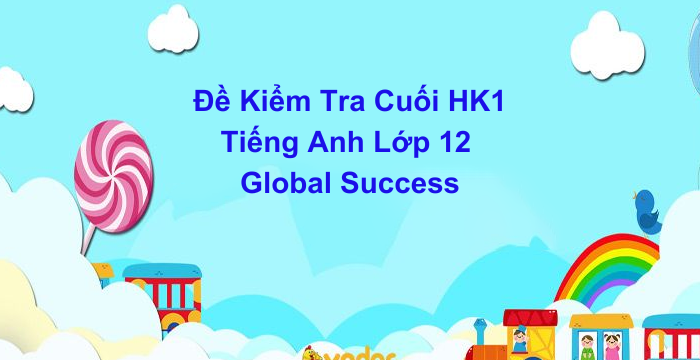Đề Cương Ôn Tập Giữa Học Kì 2 Tiếng Anh Lớp 11 Global Success (26.03.2025)
Thầy Thắng
ĐỀ CƯƠNG LỚP 11
15
Ngày đăng: 26-03-2025 10:51:24
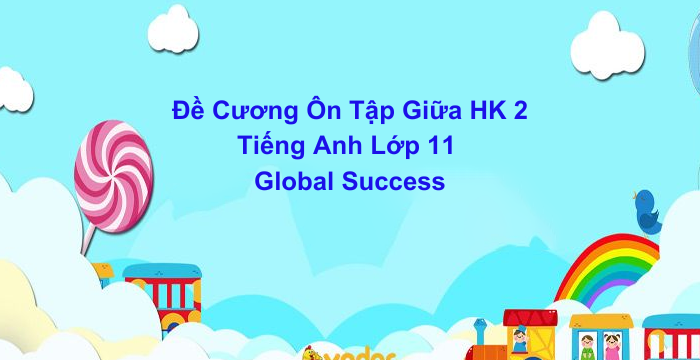
HƯỚNG DẪN ÔN TẬP KIỂM TRA GIỮA HỌC KÌ II
Trường THPT Thanh Khê, TP Đà Nẵng, 2024 - 2025
I. VOCABULARY AND GRAMMAR
Mark the letter A, B, C, or D to indicate the correct answer to each of the following sentences.
1. The tour of the cave and grotto system is the main ______ for tourists in Phong Nha-Ke Bang National Park.
A. attractive B. attractiveness C. attract D. attraction
2. Hoi An Ancient Town is quite special among the heritage sites because it is in a good state of _______
A. preserve B. preservation C. preservative D. preservatives
3. Marie Curie was the first woman ______ two Nobel prizes.
A. who awarded B. to be awarded C. awarding D. that was awarding
4. The captain is the last person _______ the sinking ship.
A. to leave B. to remain C. to wait D. to stop
5. Son Doong Cave is the largest cave _______ in Phong Nha-Ke Bang National Park.
A. to be discovered B. discovering C. discover D. which discovered
6. The travel agency offers a lot of destinations for tourists _______ from.
A. choosing B. choose C. to be choosing D. to choose
7. At 16, Mary left school _______ of her younger brothers.
A. take care B. taking care C. to take care D. to be taken care
8. We have a duty to safeguard our cultural heritage for future _______ and to ensure that it is not lost or destroyed through neglect or willful destruction.
A. people B. generations C. staff D. teenagers
9. The clubs will organise training for students who want to learn folk songs, a _________ musical instrument, or folk dancing.
A. traditional B. tradition C. traditionally D. traditions
10. The area near the Royal palace gates was crowded ______ tourists
A. from B. with C. to D. at
11. You'll learn about urban lifestyles and traditions from the 15th to the 19th century and will see examples of ancient _______
A. architecture B. architect C. architectural D. architectonic
12. _________ is the study of the geographical regions of the planet as well as their inhabitants, including people, plants, and animals.
A. Science B. Geography C. History D. Technology
13. They _______ sacrifices so that their only child could have a good education.
A. made B. did C. provided D. lent
14. In Vietnamese schools, English, mathematics, and literature are three _________ subjects, which are compulsory in many important national examinations.
A. core B. part C. center D. middle
15. In England schooling is compulsory ______ all children from the age of 5 to 16.
A. with B. for C. to D. over
16. More and more young people prefer ________ education because they like to learn practical skills.
A. university B. college C. vocational D. higher
17. Many young people find it hard to get a job immediately after ______
A. university B. school C. class D. graduation
18. ________ only three hours, I can hardly focus on my work.
A. Having slept B. was slept C. slept D. sleeping
19. Tom was accused ________ some top secret documents.
A. to steal B. of having stolen C. for stealing D. to have stolen
20. ________ with my teacher helped me understand the lesson better.
A. Had talked B. Having talked C. Have talked D. Has talked
21. Having _______ carefully for the exam, she could answer all the questions easily.
A. been revised B. had revised C. revise D. revised
22. He completed a _______ cooking course at this vocational school before he became a restaurant cook.
A. business B. professional C. formal D. responsible
23. At the education fair, we collected a lot of _______ from different institutions about their training programmes.
A. answers B. questions C. brochures D. donations
24. Despite their financial difficulties, my parents _______ to pay for my university education.
A. disagreed B. approved C. refused D. managed
25. Despite my parents' disagreement, I'm _______ to drop out of university and establish my own business.
A. determined B. confident C. successful D. energetic
26. If you choose to study abroad, you have to live _______ from home.
A. on B. away C. in D. up
27. Self-study can make learners more confident ________ their abilities to complete tasks independently
A. at B. away C. in D. for
28. _______ asked the policeman a lot of questions.
A. It is the pedestrian whom
B. It is the pedestrian what
C. It was the pedestrian who
D. It was the pedestrian when
29. It was Thomas _________ to help us.
A. comes B. that comes C. to come D. who came
30. ________ my parents gave me a new computer.
A. It was on my birthday when
B. It was my birthday on that
C. It was my birthday that
D. It was on my birthday that
31. Through cultural heritage, individuals can _______ their ancestors' traditions.
A. put off B. appreciate C. eliminate D. complete
32. When independence becomes your _______, it leads to the 4C's: confidence, competence, creativity, and character.
A. priority B. variety C. importance D.action
33. The University of Oxford is one of the best academic ________ in the world.
A. chances B. careers C. institutions D. companies
34. My brother wasn't offered the job because he didn't have the right _______
A. qualifications B. trades C. apprentices D. skilled people
35. Independent _______ plan their learning and set their own goals.
A. teachers B. learners C. parents D. neighbours
36. Is becoming independent as ________ as we may think?
A. challenging B. curious C. responsible D. academic
37. Self-study gives learners more _______ as they can decide what and when they should study.
A. challenge B. freedom C. difficulty D. confidence
38. My parents have always allowed me some _______.
A. self-study B. confidence C. responsibility D. independence
39. I've gained my parents' trust, and they believe that I'm _______ when I'm out and about.
A. interesting B. dependent C. self-motivated D. responsible
40. Babysitting and dog walking are good ________ for teenagers.
A. well-paid jobs B. chores C. part-time jobs D. life skills
41. This ______ app helps me create to-do lists and organise my tasks.
A. time-management B. money-management
C. skill-development D. self-study
Mark the letter A, B, C or D to indicate the word(s) CLOSEST in meaning to the underlined word(s) in the following question.
42. All buildings are kept in their original state. It's a great place to explore.
A. change B. defeat C. discover D. broaden
43. My application for the scholarship was turned down because the grade transcript was insufficient.
A. cancelled B. postponed C. reduced D. rejected
44. Thomas is very reliable - if he says he'll do something, he'll do it.
A. mean B. independent C. decisive D dependable
Mark the letter A, B, C or D to indicate the word(s) OPPOSITE in meaning to the underlined word(s) in the following question.
45. We should increase efforts to preserve "ca tru" because nowadays there are very few "ca tru” musicians left.
A. protect B. defend C. destroy D. guard
46. We always appreciate feedback from friends, so if you have any questions or suggestions, please let us know.
A. depress B. welcome C. disregard D. consider
47. My parents also encourage me to take part-time jobs and pay me for doing certain chores around the house.
A. offer B discourage C. impact D. imagine
II. Writing:
Exercise 1: Rewrite the sentences replacing the underlined relative clauses with to-infinitive clauses.
1. The last person who leaves the room must turn off the lights.
→ _____________________________
2. The most interesting thing that you can do in Ha Long is to go on a boat tour around the islands.
→ _____________________________
3. The first job applicant that we will interview today doesn't have any experience.
→ _____________________________
Exercise 2: Combine the sentences using to-infinitive clauses.
1. Minh left the show very early. He was the first person who did so.
→ _____________________________
2. We went to the Mekong River Delta. We wanted to watch live performances of don ca tai tu there.
→ _____________________________
3. Mrs. Hoa joined the walking holiday. She was the oldest person who did so.
→ _____________________________
Exercise 3: Rewrite these sentences using perfect participle clauses or perfect gerunds. Add commas where necessary.
1. My mother didn't go to university. She regretted it.
My mother regretted ______________________
2. My brother wrote his first travel book after he had returned from Japan.
______________________
3. He didn't keep his promise. He apologised for that.
→He apologised for ______________________
4. Because I had spent the entire day cleaning up my room, I needed to take a shower and have a rest.
→ Having ______________________
5. He had drunk too much alcohol, so he couldn't drive home himself.
______________________
6. Because Mary had practiced a lot, she won the first prize in the fashion competition.
______________________
Exercise 4: Rewrite the sentences using the cleft sentences focusing on the underlined parts:
1. The earthquake destroyed everything two years ago.
______________________
2. Viet decided to start using a time-management app last week.
______________________
3. Students can download free materials in many subjects from the Internet.
______________________
4. The children played football in the garden yesterday afternoon.
______________________
5. That company will send a large number of textbooks to poor children in this area.
______________________
Exercise 5: Use the words and phrases below, and add some words where necessary to make meaningful sentences. You may need to change the forms of some nouns and verbs.
1. Different forms/ folk art / perform / important/ festivals.
______________________
2. Crowdfunding/ be/ good/ way/ money/ heritage projects.
______________________
3. Many / heritage sites / badly affected/ mass tourism.
______________________
5. old town / not only famous / unique architecture, / but also / fine cuisine.
______________________
6. Could / you / please / let / know/ whether / there / German courses / your language centre?
______________________
7. I/ would like/ know / how long / course for beginners / last.
______________________
8. Lack/ sleep / can cause / tiredness/ illnesses / such/ the common cold / the flu.
______________________
9. Working teen / may not / be able / good grades/ if they fail / balance/ work/ study.
______________________
10. Part-time job / may force / student / ignore their studies / drop out of school.
______________________
III. Reading
Exercise 1: Read the passage and choose A,B,C, or D to indicate the word or phrase that best fits each of the numbered blanks.
One way of training for your future occupation in Germany is by pursuing a dual (1) _________ training programmes offer plenty of opportunity for on -the -job training and work experience. Programmes usually last between two and three and a half years and comprise (2) _________ as well as practical elements. You will spend one or two days a week, or several weeks at one, at a vocational school (3) _______ you will acquire the theoretical knowledge that you will need in your future occupation. The rest of time will (4) _______ at a company. There you get to apply your newly acquire knowledge (5) _______ practice, for example by learning to operate machinery. You will get to know what your company does,learn how it operates and find out if you can see yourself working there after completing your training.
1. A. optional B. educational C. vocational D. compulsory
2. A. theory B. theoretical C. theoretically D. theoretician
3. A. what B. where C. why D. when
4. A. spend B. be spent C. have spent D. being spent
5. A. in B. on C. within D. belong
Exercise 2: Read the passage and choose the correct answer A, B, C or D to each question.
One of the main aims of the Singapore's education system is to help students to discover their talents and develop a passion for learning.
During secondary education, which lasts four to five years, students have opportunities to take various courses, build their strengths and develop their talent in both academic and non-academic area. For example,after passing standardized examinations, students can enroll on courses in specialized independent schools such as NUS High School of Mathematics and Science, Singapore Sports School, School of the Arts, or School of Science and Technology. They can further their study and interests at junior colleges and polytechnics through direct admission. These are flexible ways that allow students to continue their education journey at a post-secondary institution.
After leaving secondary school, students can pursue either pre-university education or technical education. A pre-university course provides students with essential skills and knowledge for higher education. They can realize their potential through a wide range of subjects from academic areas such as Humanities. Arts. Languages, mathematics, and Science. Alternatively, technical education, through collaboration with companies and other organizations,can equip students wit professional, technical skills and working experience. They can select engineering, technical, business or service skills areas to prepare themselves for their work environment.
1. One of the important targets of Singapore's education is to help students
A. to improve their English
B. to discover their talents
C.to develop a passion for learning
D. both B and C
2. Secondary education in Singapore lasts from ______
A. 4 to 5 months B. 4 to 5 years C. 3 to 5 years D. 4 to 6 years
3. The word "opportunities" in the second paragraph is closest in meaning to
A. talents B. chances C. courses D. qualifications
4. Secondary education helps students to build up their strengths and develop their talents _______
A. in a lot of different courses
B. in only academic areas
C. in only non-academic areas
D. in both academic and non-academic areas
5. Secondary school leavers can choose ________ education or technical education.
A. universal B. pre- university C. postgraduate D. professional
The end!
Giải đáp mọi thắc mắc trong đề vui lòng liên hệ Zalo: 034 8371 758
Theo dõi fanpage để cập nhật nhanh các bài tập và đề kiểm tra mới nhất.
https://www.facebook.com/profile.php?id=61555984765050
Bài Viết Liên Quan
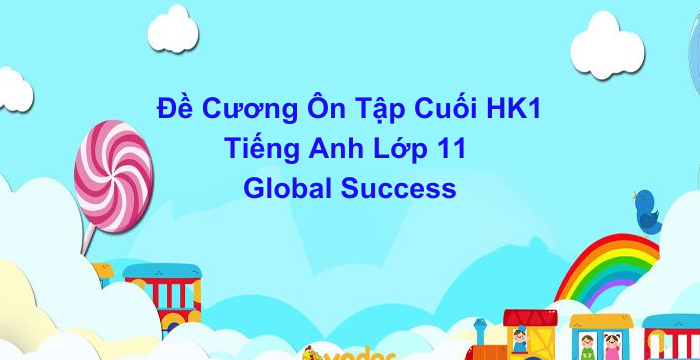
Đề Cương Ôn Tập Cuối Học Kì 1 Tiếng Anh Lớp 11 Global Success (20.12.2025)

Đề Cương Ôn Tập Cuối Học Kì 1 Tiếng Anh Lớp 11 Global Success (19.12.2025)

Đề Cương Ôn Tập Cuối Học Kì 1 Tiếng Anh Lớp 11 Global Success (6.12.2025)
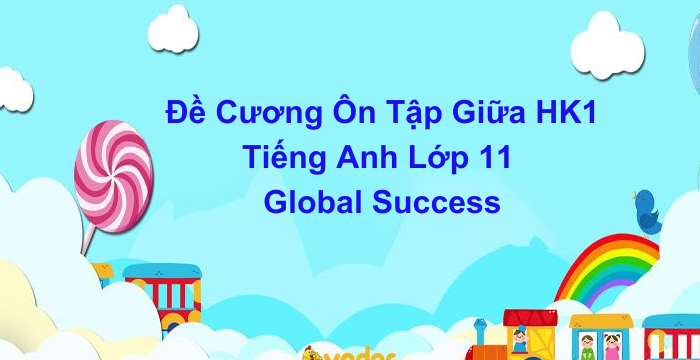
Đề Cương Ôn Tập Giữa Học Kì 1 Tiếng Anh Lớp 11 Global Success (7.11.2025)

Đề Cương Ôn Tập Giữa Học Kì 1 Tiếng Anh Lớp 11 Global Success (3.11.2025)

Đề Cương Ôn Tập Giữa Học Kì 1 Tiếng Anh Lớp 11 Global Success (3.11.2025)

Đề Cương Ôn Tập Cuối Học Kì 2 Tiếng Anh Lớp 11 Global Success (14.05.2025)

Đề Cương Ôn Tập Cuối Học Kì 2 Tiếng Anh Lớp 11 Global Success (18.04.2025)

Đề Cương Ôn Tập Cuối Học Kì 2 Tiếng Anh Lớp 11 Global Success (18.04.2025)

Đề Cương Ôn Tập Cuối Học Kì 2 Tiếng Anh Lớp 11 Global Success (14.04.2025)

Đề Cương Ôn Tập Cuối Học Kì 2 Tiếng Anh Lớp 11 Global Success (11.04.2025)

Đề Cương Ôn Tập Giữa Học Kì 2 Tiếng Anh Lớp 11 Global Success (24.03.2025)

Đề Cương Ôn Tập Giữa Học Kì 2 Tiếng Anh Lớp 11 Global Success (19.03.2025)

Đề Cương Ôn Tập Giữa Học Kì 2 Tiếng Anh Lớp 11 Global Success (19.03.2025)

Đề Cương Ôn Tập Giữa Học Kì 2 Tiếng Anh Lớp 11 Global Success (19.03.2025)

Đề Cương Ôn Tập Cuối Học Kì 1 Tiếng Anh Lớp 11 Global Success (03.01.2025)

Đề Cương Ôn Tập Cuối Học Kì 1 Tiếng Anh Lớp 11 Global Success (15.12.2024)

Đề Cương Ôn Tập Cuối Học Kì 1 Tiếng Anh Lớp 11 Global Success (15.12.2024)

Đề Cương Ôn Tập Cuối Học Kì 1 Tiếng Anh Lớp 11 Global Success (14.12.2024)

Đề Cương Ôn Tập Cuối Học Kì 1 Tiếng Anh Lớp 11 Global Success (12.12.2024)

Đề Cương Ôn Tập Giữa Học Kì 1 Tiếng Anh Lớp 11 Global Success (07.11.2024)

Đề Cương Ôn Tập Giữa Học Kì 1 Tiếng Anh Lớp 11 Global Success (29.10.2024)

Đề Cương Ôn Tập Giữa Học Kì 1 Tiếng Anh Lớp 11 Global Success (26.10.2024)

Đề Cương Ôn Tập Cuối Học Kì 1 Tiếng Anh Lớp 11 Global Success (06.06.2024)

Đề Cương Ôn Tập Cuối Học Kì 1 Tiếng Anh Lớp 11 Global Success (06.06.2024)

Đề Cương Ôn Tập Cuối Học Kì 1 Tiếng Anh Lớp 11 Global Success (06.06.2024)

Đề Cương Ôn Tập Cuối Học Kì 1 Tiếng Anh Lớp 11 Global Success (06.06.2024)

Đề Cương Ôn Tập Cuối Học Kì 1 Tiếng Anh Lớp 11 Global Success (06.06.2024)

Đề Cương Ôn Tập Giữa Học Kì 1 Tiếng Anh Lớp 11 Global Success (31.05.2024)

Đề Cương Ôn Tập Giữa Học Kì 1 Tiếng Anh Lớp 11 Global Success (31.05.2024)

Đề Cương Ôn Tập Giữa Học Kì 1 Tiếng Anh Lớp 11 Global Success (31.05.2024)

Đề Cương Ôn Tập Giữa Học Kì 1 Tiếng Anh Lớp 11 Global Success (31.05.2024)

Đề Cương Ôn Tập Giữa Học Kì 1 Tiếng Anh Lớp 11 Global Success (31.05.2024)

Đề Cương Ôn Tập Giữa Học Kì 1 Tiếng Anh Lớp 11 Global Success (31.05.2024)
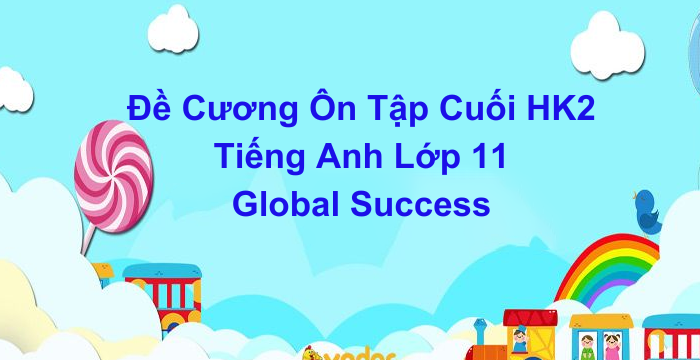
Đề Cương Ôn Tập Cuối Học Kì 2 Tiếng Anh Lớp 11 Global Success (28.04.2024)

Đề Cương Ôn Tập Cuối Học Kì 2 Tiếng Anh Lớp 11 Global Success (24.04.2024)

Đề Cương Ôn Tập Cuối Học Kì 2 Tiếng Anh Lớp 11 Global Success (21.04.2024)

Đề Cương Ôn Tập Cuối Học Kì 2 Tiếng Anh Lớp 11 Global Success (17.04.2024)

Đề Cương Ôn Tập Cuối Học Kì 2 Tiếng Anh Lớp 11 Global Success (12.04.2024).

Đề Cương Ôn Tập Cuối Học Kì 2 Tiếng Anh Lớp 11 Global Success (12.04.2024)
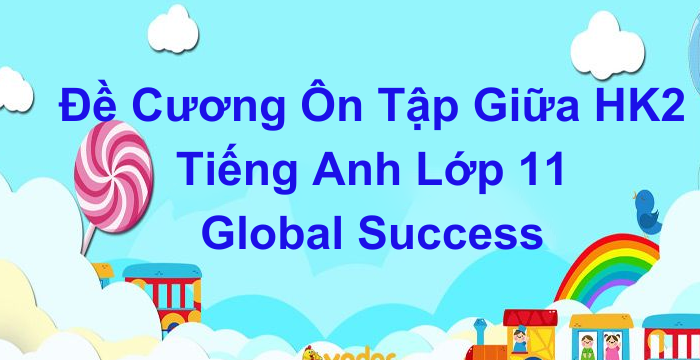
Đề Cương Ôn Tập Giữa Học Kì 2 Tiếng Anh Lớp 11 Global Success (20.03.2024)

Đề Cương Ôn Tập Giữa Học Kì 2 Tiếng Anh Lớp 11 Global Success (18.03.2024)

Đề Cương Ôn Tập Giữa Học Kì 2 Tiếng Anh Lớp 11 Global Success 08.03.2024

Đề Cương Ôn Tập Giữa Học Kì 2 Tiếng Anh Lớp 11 Global Success 07.03.2024

Đề Cương Ôn Tập Giữa Học Kì 2 Tiếng Anh Lớp 11 Global Success 29.02.2024

Bài Đăng Gần Đây
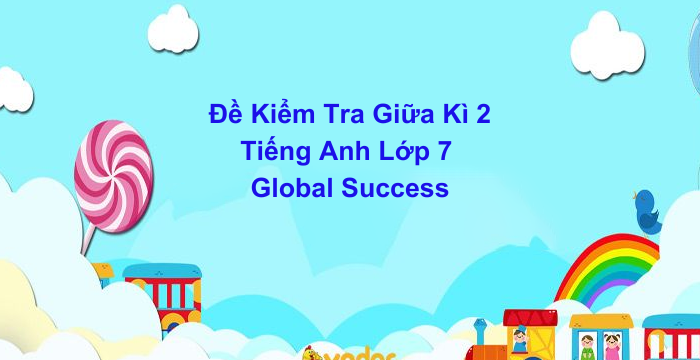
Đề Kiểm Tra Giữa Kì 2 Tiếng Anh Lớp 7 Global Success (3.2.2026)
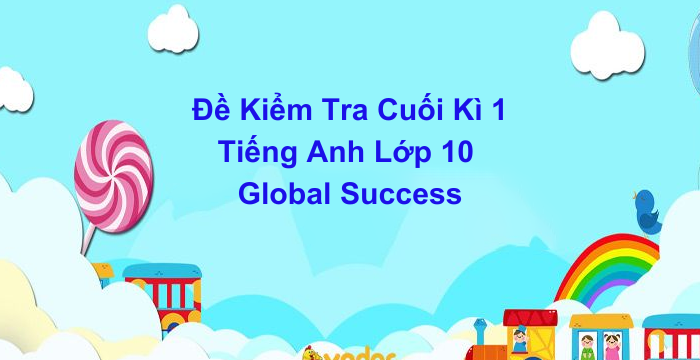
Đề Kiểm Tra Cuối Kì 1 Tiếng Anh Lớp 10 Global Success (02.01.2026)
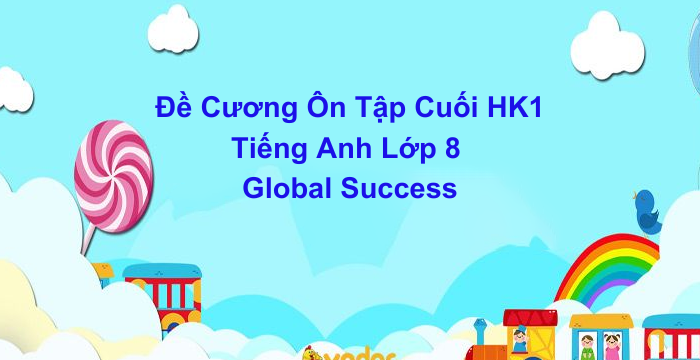
Đề Cương Ôn Tập Cuối Học Kì 1 Tiếng Anh Lớp 8 Global Success (30.12.2025)

Đề Kiểm Tra Cuối Kì 1 Tiếng Anh Lớp 6 Global Success (30.12.2025)
